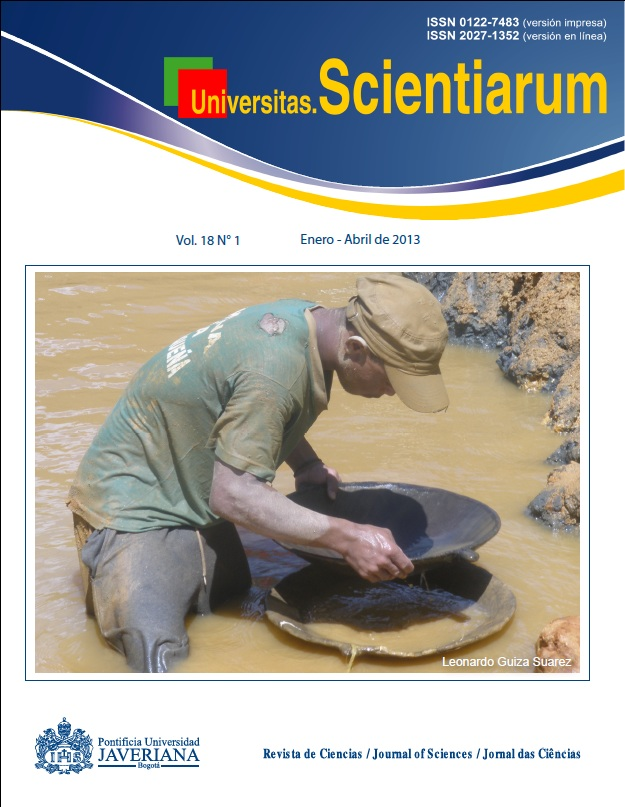Abstract
Identifying and analyzing the causes and consequences that generate the high consumption of mercury in gold mining activities is an internacional priority. In Colombia, eighty-seven percent of the country's gold mines have no mining title and only 3% posses environmental lawlessness, the failures of formalization programs and the inadequacy of importation controls on the supply are the cause of the high consumption of mercury in Colombian mining. To diagnose the country's gold mining activities and the excessive use of mercury in them, we used six information sources (semi-structured interviews, 2011 Census on Mining Activities), nine dependent and 21 independent variables. The study evidenced the miners' partiality in favor of the use of mercury in the procurement of gold; the process is easy, quick and inexpensive. Mercury concentrations were found to be above tolerable levels. In response, government has opted for a policy of persecution of the activity rather than the promotion of their formalization.
Univ. Sci. is registered under a Creative Commons Attribution 4.0 International Public License. Thus, this work may be reproduced, distributed, and publicly shared in digital format, as long as the names of the authors and Pontificia Universidad Javeriana are acknowledged. Others are allowed to quote, adapt, transform, auto-archive, republish, and create based on this material, for any purpose (even commercial ones), provided the authorship is duly acknowledged, a link to the original work is provided, and it is specified if changes have been made. Pontificia Universidad Javeriana does not hold the rights of published works and the authors are solely responsible for the contents of their works; they keep the moral, intellectual, privacy, and publicity rights. Approving the intervention of the work (review, copy-editing, translation, layout) and the following outreach, are granted through an use license and not through an assignment of rights. This means the journal and Pontificia Universidad Javeriana cannot be held responsible for any ethical malpractice by the authors. As a consequence of the protection granted by the use license, the journal is not required to publish recantations or modify information already published, unless the errata stems from the editorial management process. Publishing contents in this journal does not generate royalties for contributors.



